Summary and photos from the Roundtable on May 13, 2025
Summary
A roundtable organized by SITE and NUF brought together policymakers, researchers, and civil society representatives from Ukraine and Sweden to discuss Ukraine’s EU accession path, institutional reforms, economic integration, and green transition.
Institutional and legal adaptation
-
Sweden’s role: Sweden reaffirmed its comprehensive support for Ukraine’s EU integration, reconstruction, and reforms.
-
EU accession progress: Ukraine has made rapid progress post-2022, completing key reforms, yet faces challenges like Hungary’s obstruction and institutional capacity strains.
-
Legal reforms: Efforts are underway to harmonize Ukraine’s sanctions and legal systems with EU standards, including new legislation on sanction violations.
-
EU dynamics: Concerns were raised about inconsistent political will within the EU, with discussions around using Article 7 against obstructive members and the sensitive proposal to decouple Ukraine and Moldova’s accession tracks.
Economic integration and green transition
-
Financial challenges: Ukraine bears a heavy military expenditure burden, with calls for unlocking frozen Russian assets to support its economy.
-
Green recovery: Ukraine’s green transition is positioned as a cornerstone of its EU convergence and post-war reconstruction, offering opportunities to leapfrog outdated infrastructure.
-
Social inclusion: Trade unions and labor reforms are crucial for ensuring a just and inclusive recovery, focusing on vulnerable groups like veterans and women.
-
Private sector role: Institutions like Swedfund stress sustainable infrastructure investment, corruption prevention, and coordination with local stakeholders.
Cross-cutting themes
-
Political unity: The need for EU solidarity and effective legal mechanisms to overcome member state blockages.
-
Institutional convergence: Urgent focus on enforcement, transparency, and capacity building in Ukraine.
-
Green and just recovery: Leveraging post-war rebuilding for sustainable, inclusive economic development.
-
Strategic aid: Pressing for financial mechanisms that ensure Ukraine’s resilience and sovereignty.
Conclusion
The overall consensus among the participants at the roundtable was that Ukraine has the potential to emerge from the current crisis stronger and more closely aligned with European values and standards. However, this outcome hinges on sustained efforts in legal harmonization, institutional reform, and economic modernization, coupled with consistent and united support from the EU and its member states. The discussions underscored that Ukraine’s successful EU integration will require not only technical and legislative adjustments but also enduring political will—both within Ukraine and across the EU—to overcome internal divisions and external challenges.
Photos
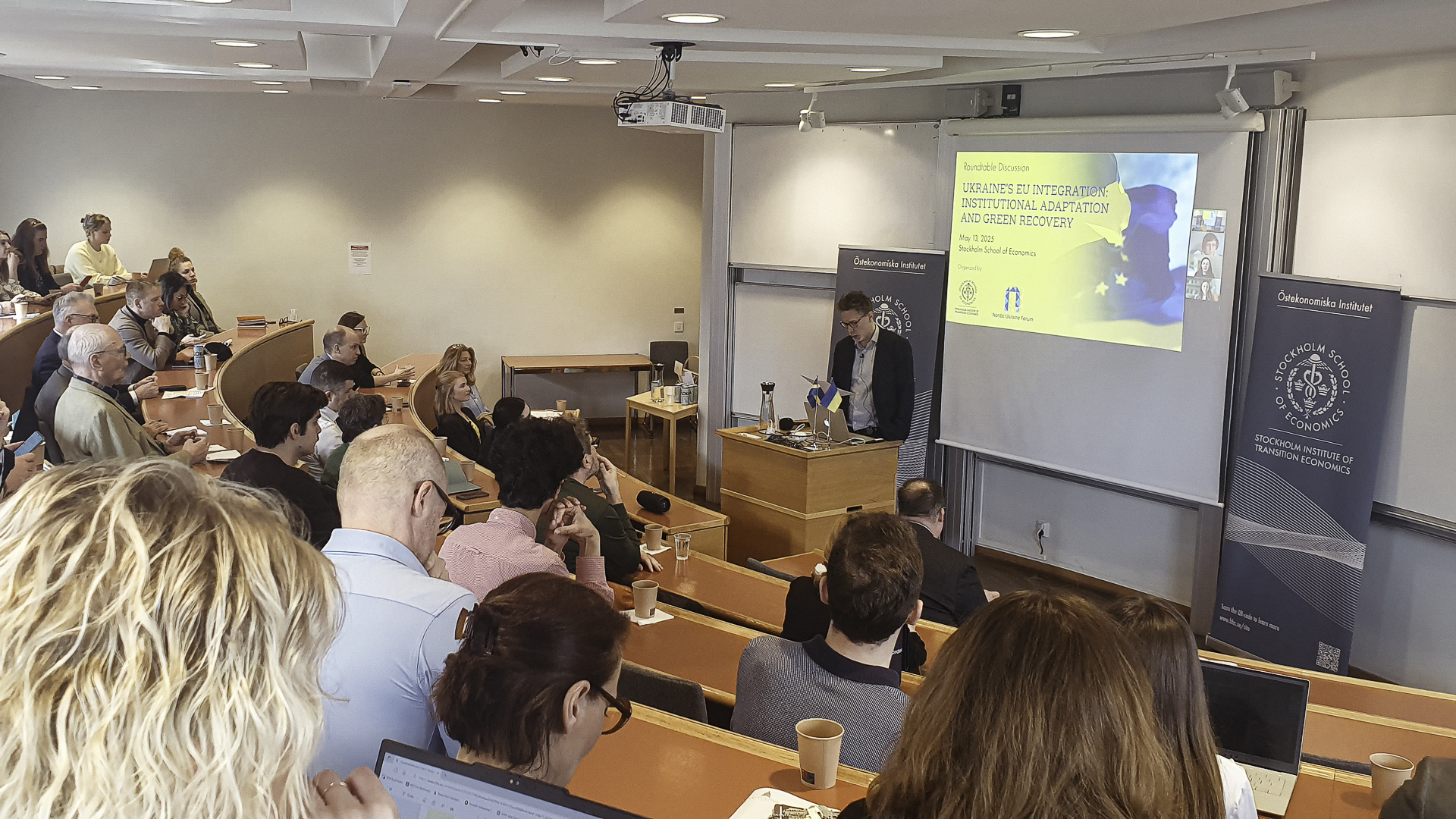
Anders Olofsgård, Deputy Director of SITE, as he inaugurates the event, extending a heartfelt greeting to all attendees. Photo: Bernhard Mollik
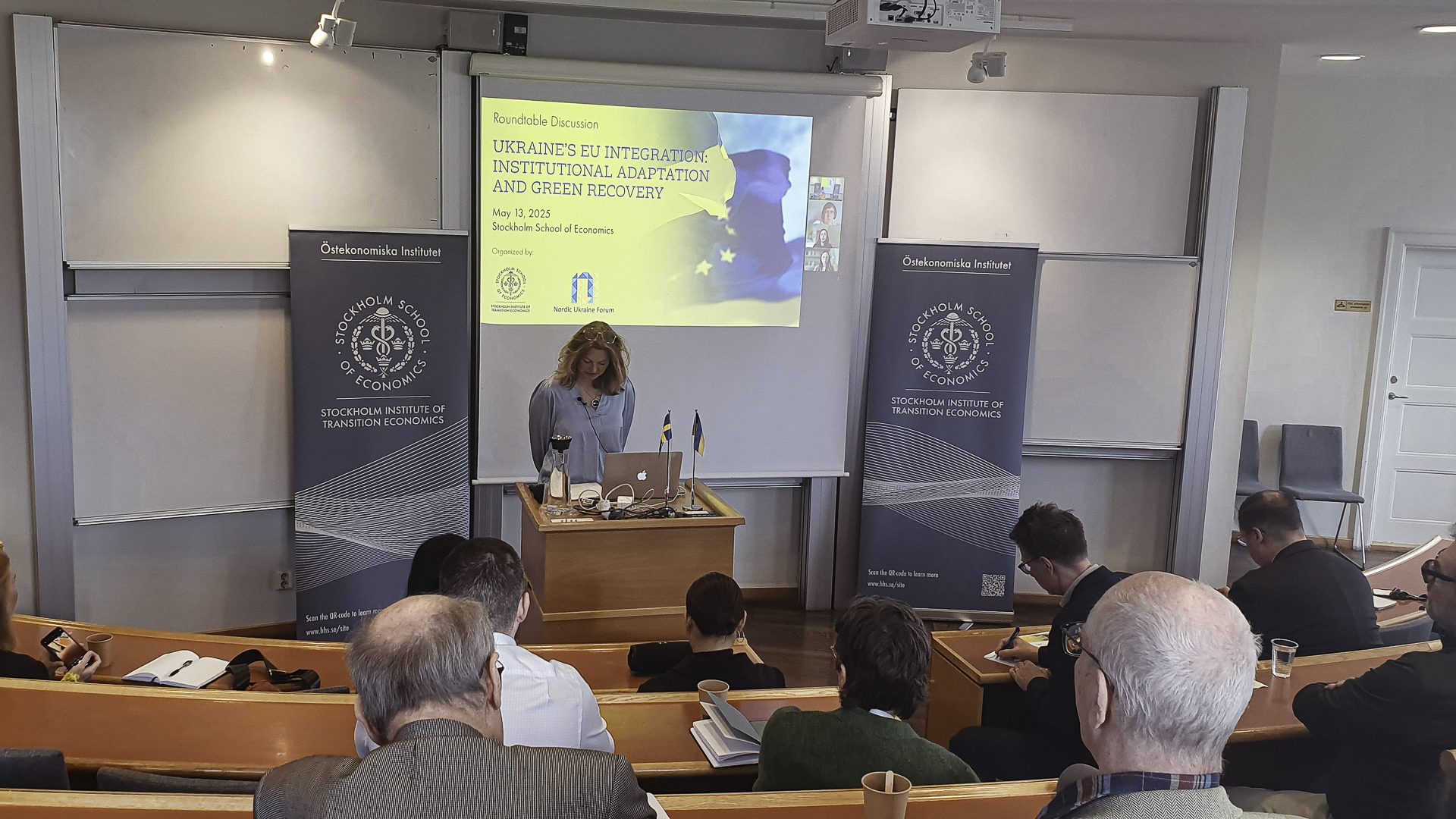
Helena Gustavsson Wahlund, Deputy Director, Ministry of Foreign Affairs (MFA), UA section. Photo: Bernhard Mollik
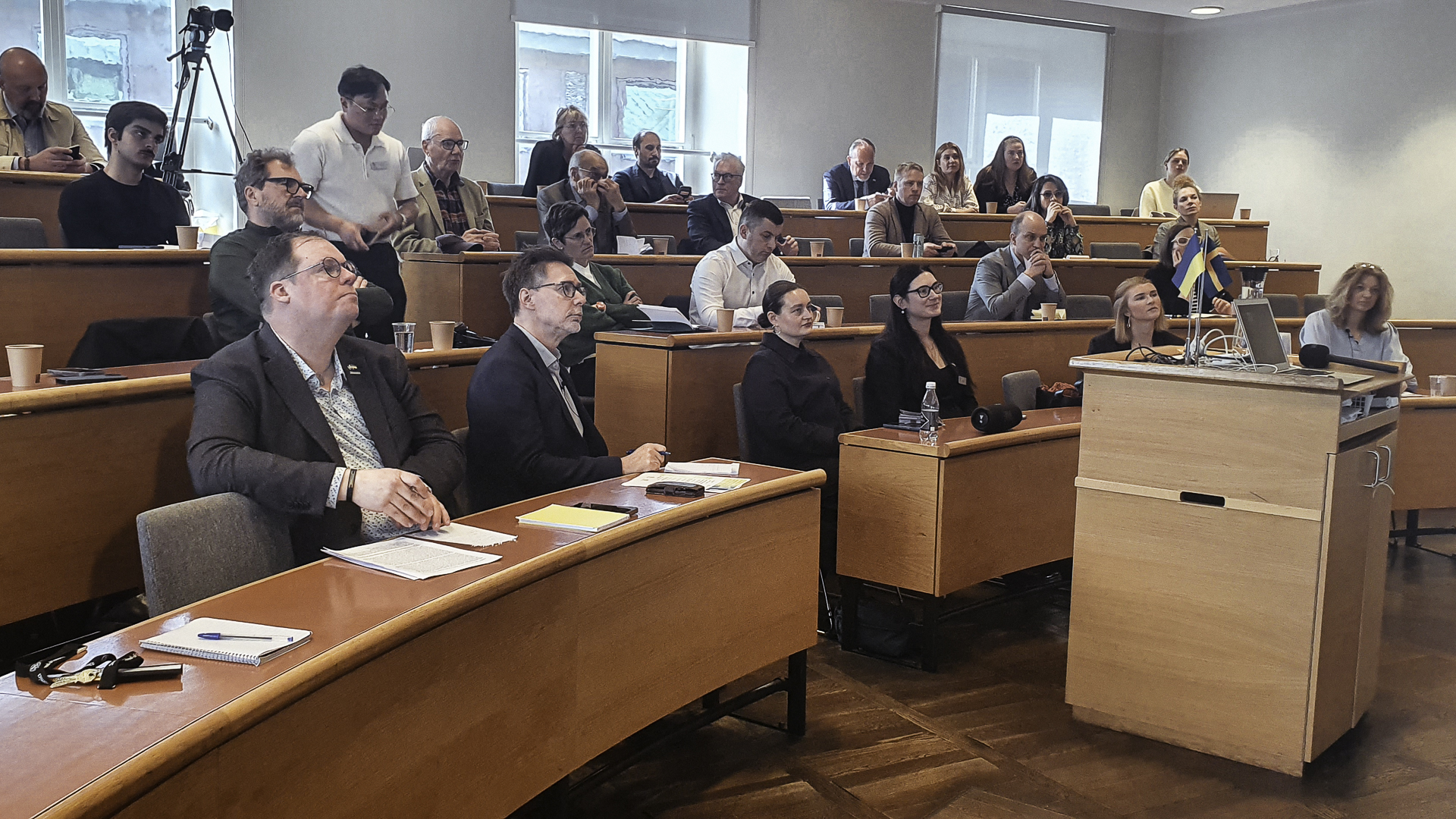
Photo of the audience as they listen to the insightful comments. Photo: Bernhard Mollik
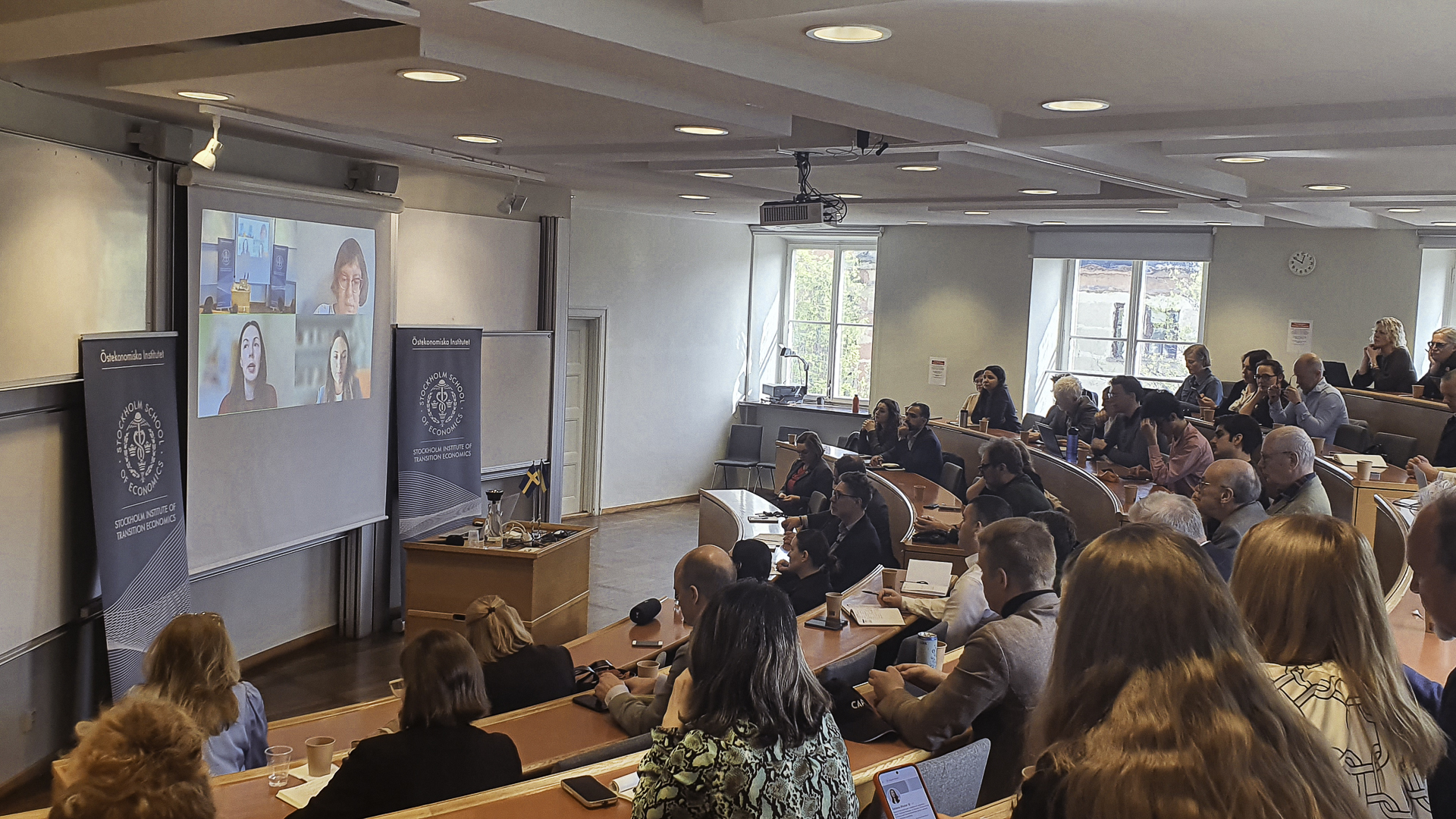
Marianna Fakhurdinova, Coordinator of EU-Ukraine Partnership Program at Transatlantic Dialogue Center (TDC); Fellow at CEPA. Maryna Rabinovych, Assistant Professor, Kyiv School of Economics (KSE), Post-Doctoral Researcher, The Arctic University of Norway. Tetiana Khutor, Chairwoman, The Institute of Legislative Ideas (ILI). Photo: Bernhard Mollik
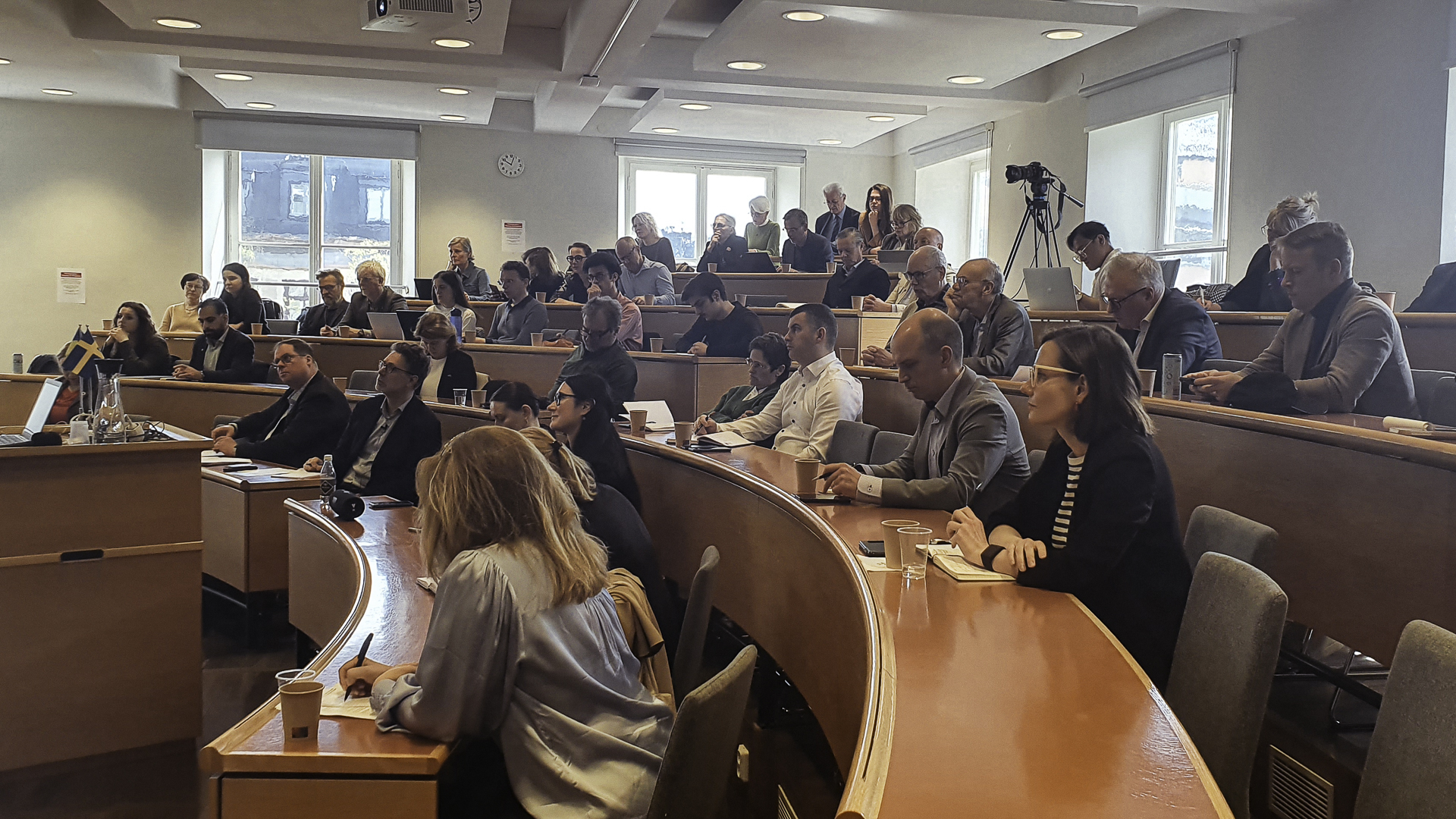
Photo of the audience as they listen to Marianna Fakhurdinova, Maryna Rabinovych, and Tetiana Khutor sharing their comments and insights. Photo: Bernhard Mollik
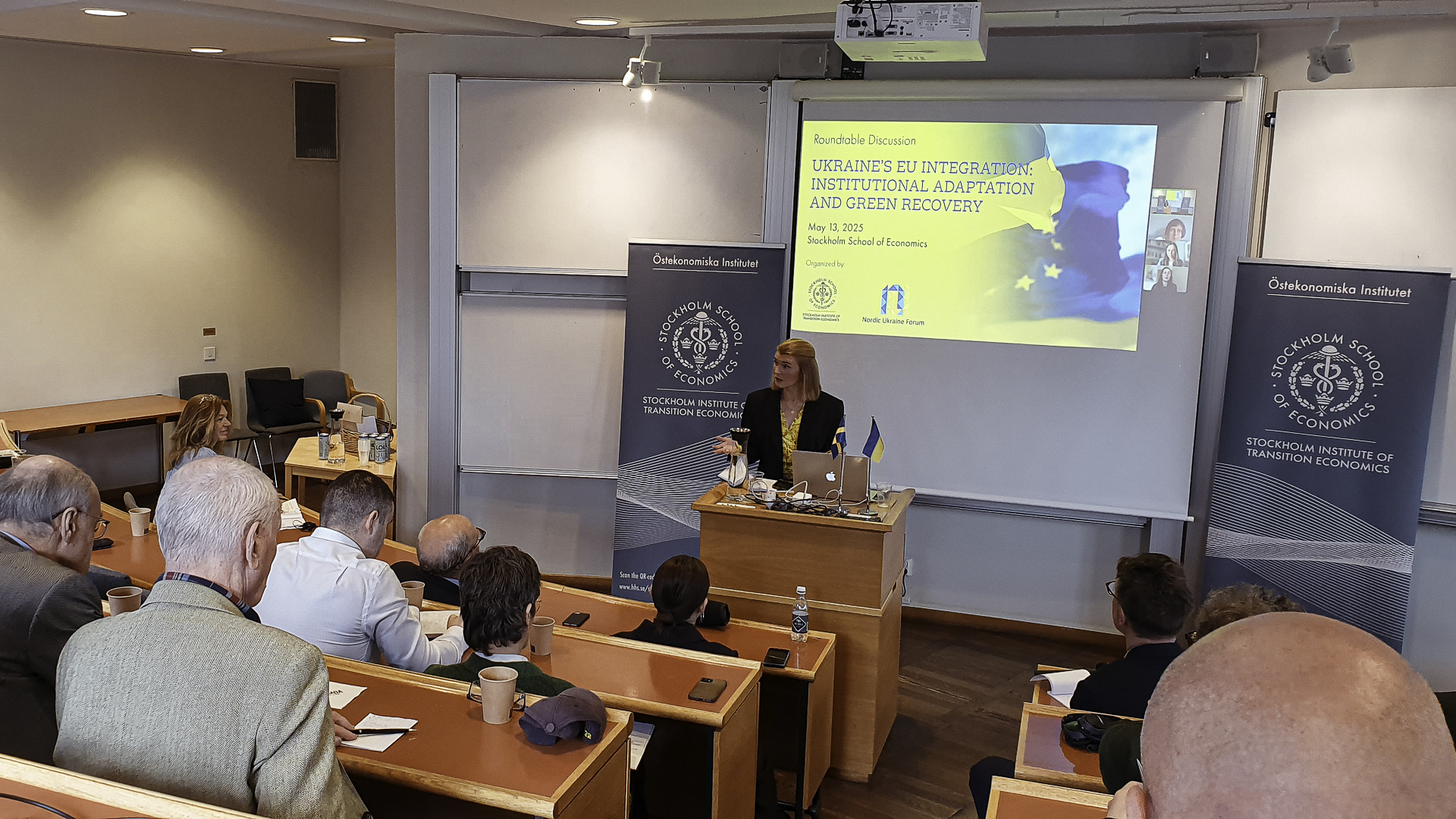
Klara Lindström, Analyst, Stockholm Centre for Eastern European Studies (SCEEUS). Photo: Bernhard Mollik
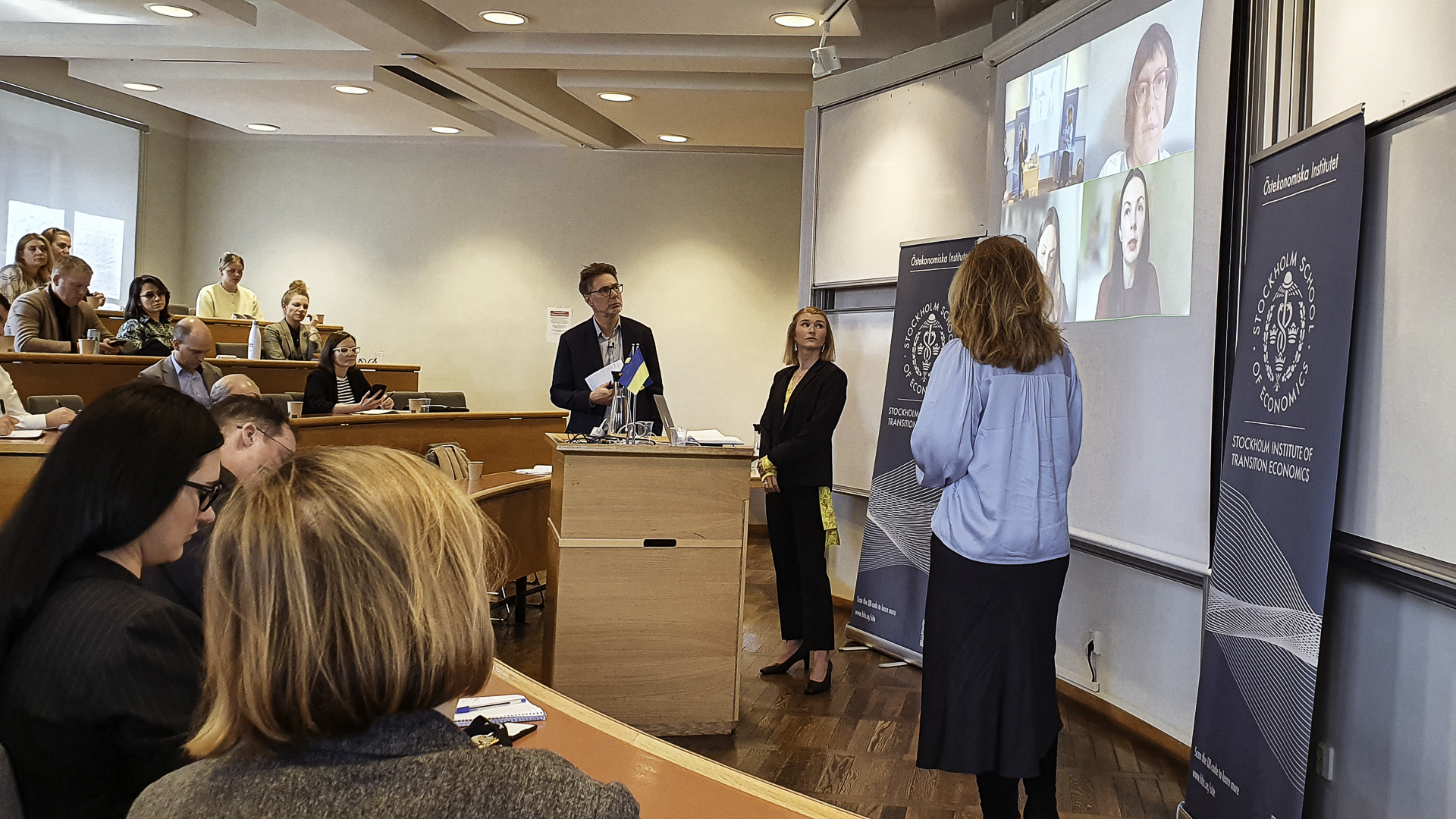
During the Q&A session of the first panel discussion "Aligning institutions: Ukraine’s political and legal adaptation to EU norms" chaired by Anders Olofsgård. Photo: Bernhard Mollik
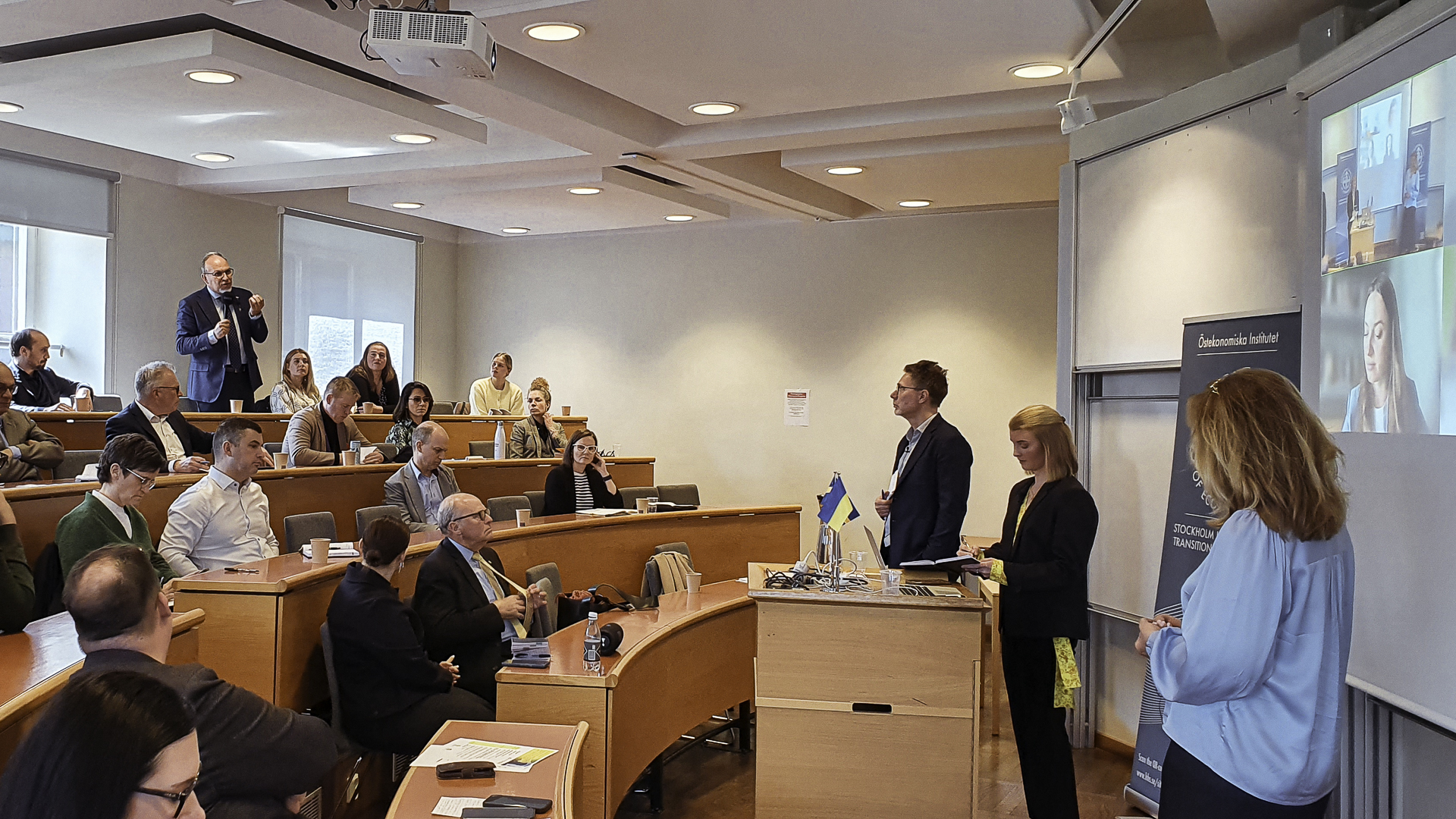
One of many members of the audience posed a question to the panel during the Q&A session of the first panel. Photo: Bernhard Mollik
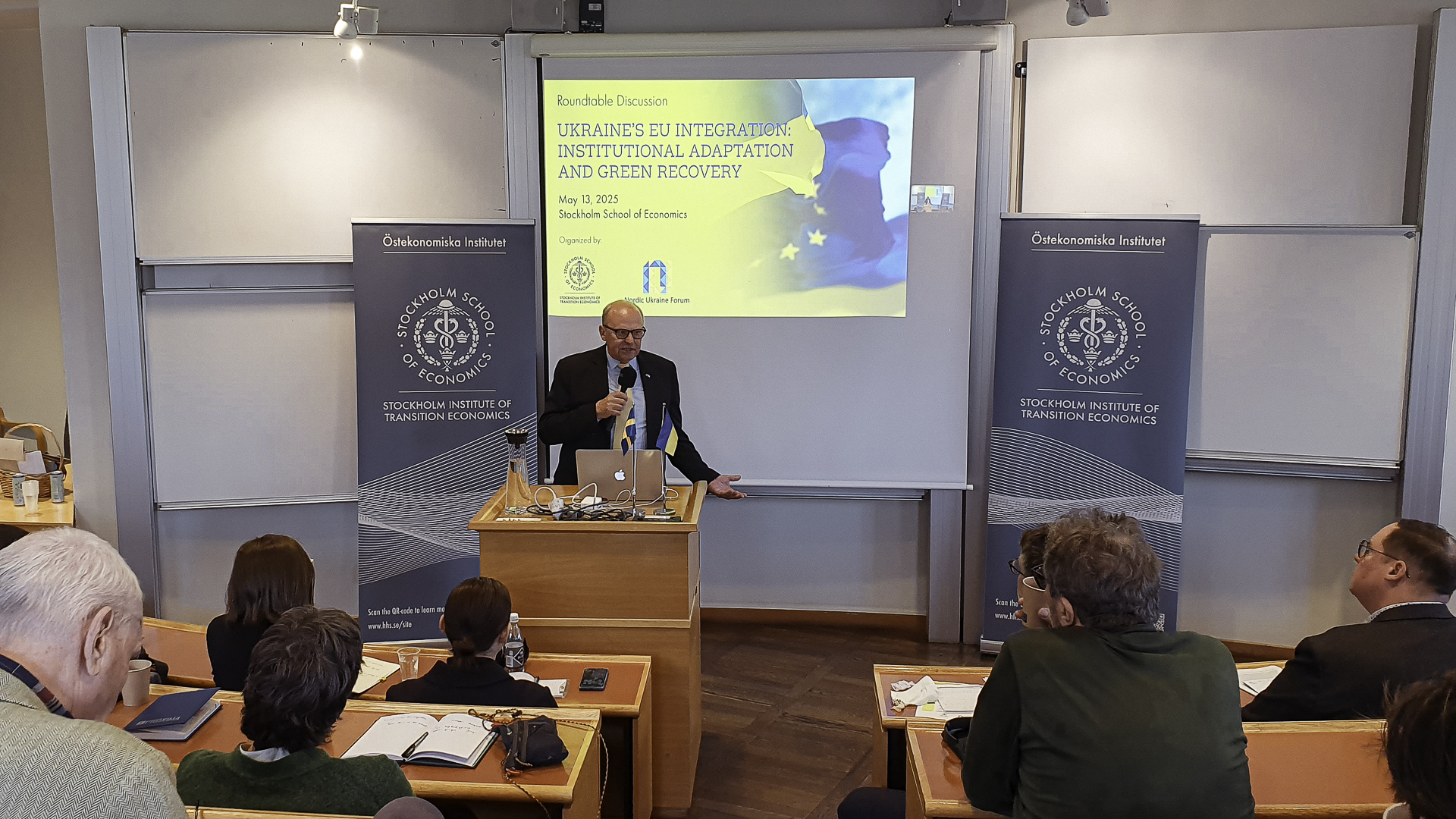
Anders Åslund, Senior Fellow at Frivärld, Adjunct Professor, Georgetown University; Former Director of the Stockholm Institute of Transition Economics (SITE). Photo: Bernhard Mollik
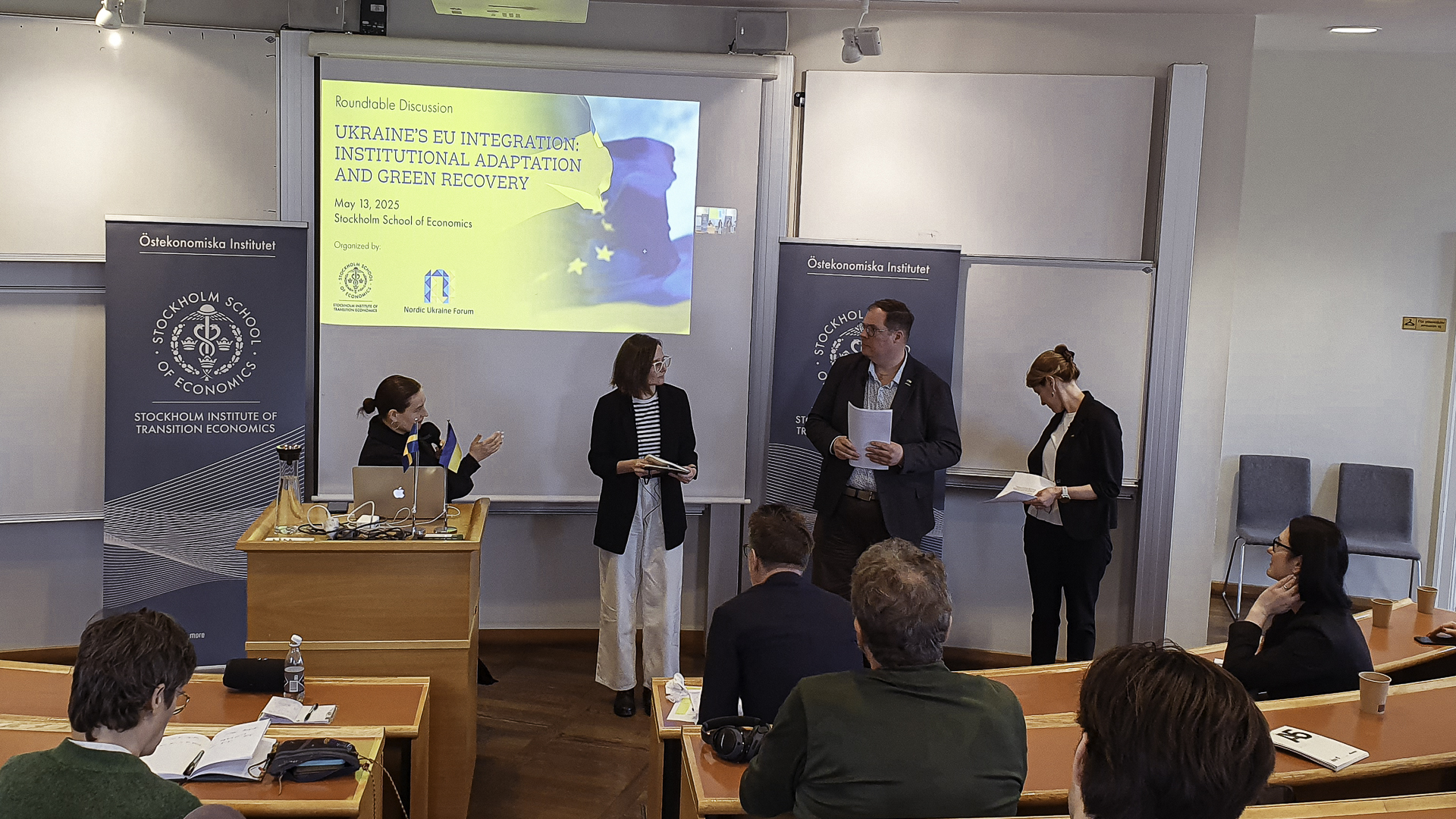
In focus: Martin Jefflen, International Secretary, Unionen, during the second panel "From recovery to convergence: Ukraine’s economic integration and the green transition" chaired by Alina Zubkovych, Head of Nordic Ukraine Forum. Photo: Bernhard Mollik
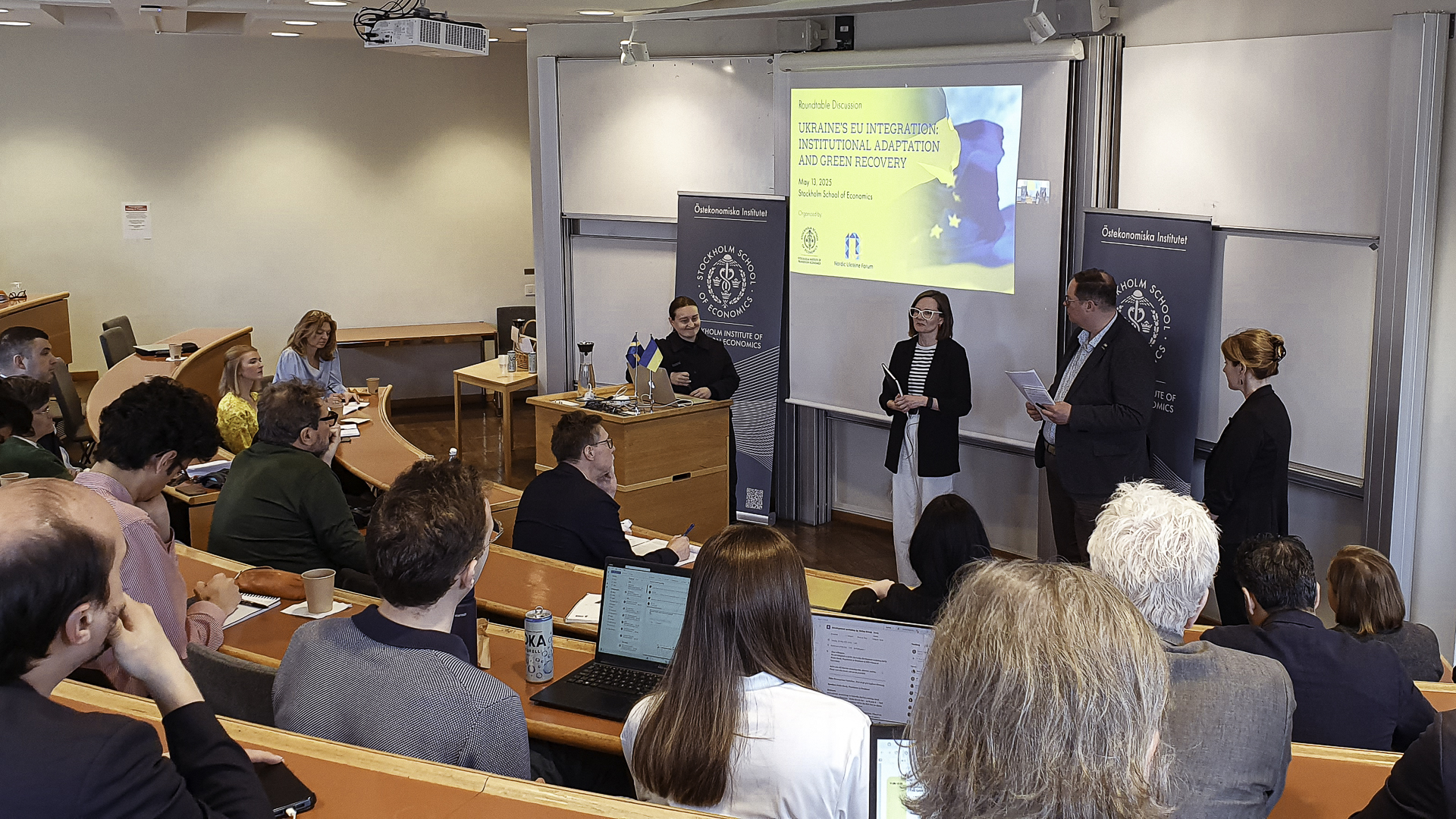
In focus: Ganna Gladkykh, Policy Fellow, Stockholm Environment Institute (SEI), during the second panel "From recovery to convergence: Ukraine’s economic integration and the green transition". Photo: Bernhard Mollik
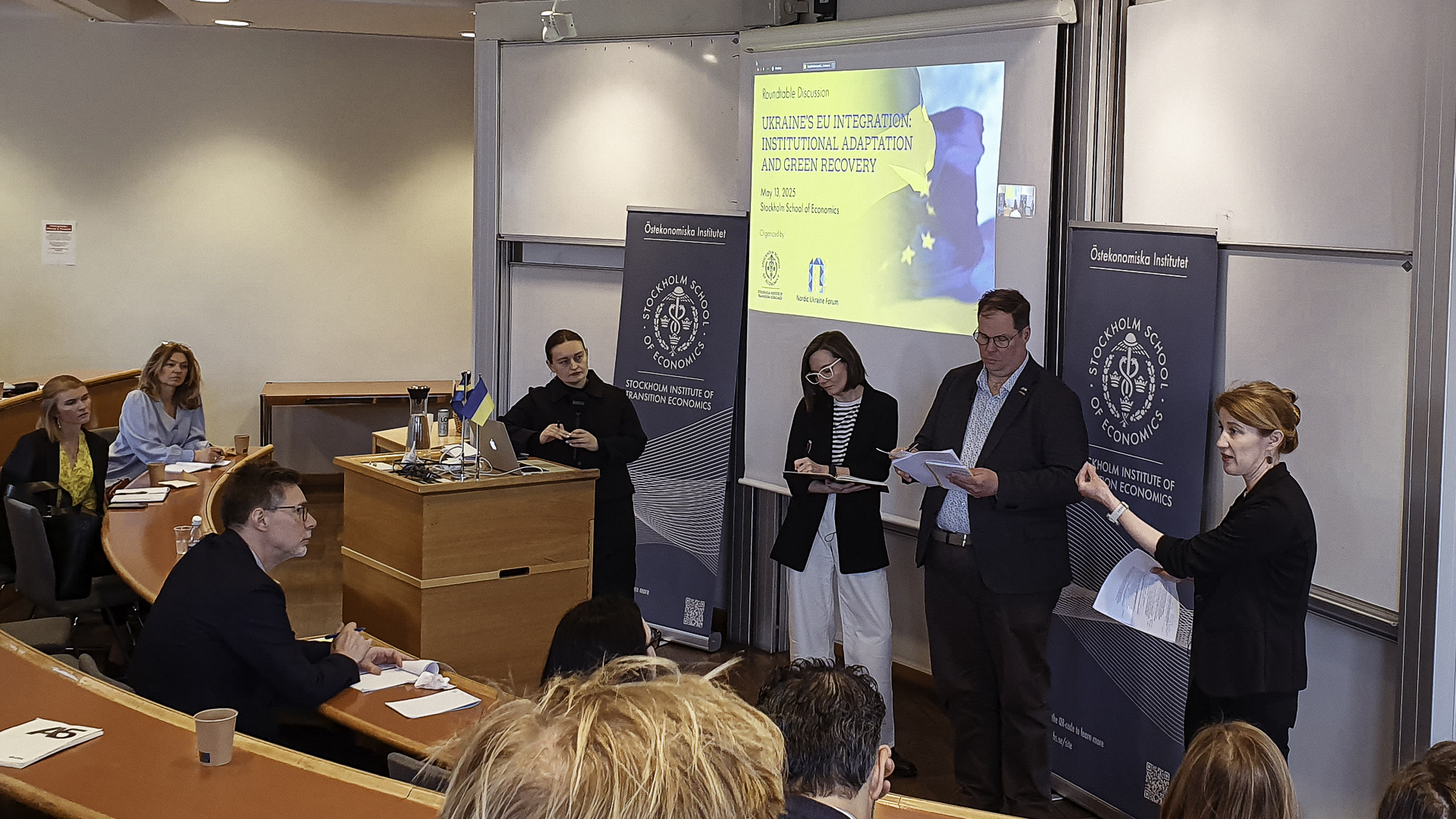
In focus: Sophie Taintor, Senior Manager, Swedfund Project Accelerator, during the second panel "From recovery to convergence: Ukraine’s economic integration and the green transition". Photo: Bernhard Mollik